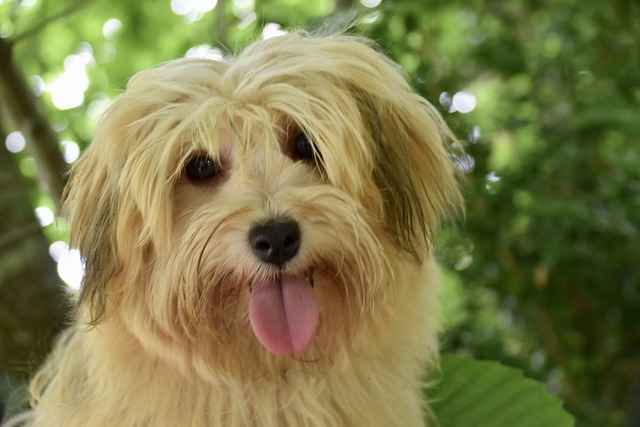


The Havanese is a small, sturdy, and affectionate dog breed known for its silky, long coat and friendly personality. Originating in Cuba, the Havanese is the national dog of the country and is often described as playful, sociable, and adaptable. They make excellent companions for individuals or families, as they are affectionate, get along well with children and other pets, and thrive in various living environments, including apartments. The Havanese is also known for being highly trainable and intelligent, making them popular in dog sports and competitions.
The Havanese breed dates back to the 1500s and is thought to have originated in Cuba, where they were bred from small dogs brought to the island by Spanish settlers. These dogs were crossbred with other breeds such as the Bichon Frise, Poodle, and Maltese, resulting in the Havanese's distinctive characteristics. The breed became a favorite among Cuban aristocrats, and it was commonly found in homes of the wealthy and nobility. However, the Havanese population dwindled in the early 20th century, and the breed nearly went extinct. In the 1970s, efforts to revive the breed were successful, and the Havanese regained popularity, particularly in the United States. The American Kennel Club (AKC) officially recognized the breed in 1996.
The Havanese is a small dog, standing around 8 to 11 inches tall at the shoulder and weighing between 7 to 13 pounds. They have a compact, sturdy body with a well-proportioned, elegant appearance. The Havanese is known for its long, flowing coat, which can be silky, wavy, or curly. Coat colors come in a wide range, including white, black, cream, chocolate, silver, sable, and various combinations of these. Their expressive eyes are dark and almond-shaped, giving them an alert and intelligent look. The breed also has a feathered tail that curls over its back. Regular grooming is necessary to maintain the Havanese’s coat and keep it looking beautiful.
The Havanese is a cheerful, affectionate, and playful dog. They are known for being sociable and loving, often forming strong bonds with their family members. Havanese dogs are typically very friendly, getting along well with children, other pets, and strangers. They are not typically aggressive but may be wary of unfamiliar situations or noises. They enjoy being around people and will often seek attention, but they are not overly demanding. Their gentle nature and adaptability make them excellent companions for families, singles, and seniors alike. Havanese are also known to be quite vocal, with a tendency to bark at new people or things, although they are generally not aggressive barkers.
While the Havanese is a small dog, they are active and playful, enjoying daily walks and playtime. They have moderate energy levels and can be satisfied with a short daily walk and some playtime in the yard or indoors. The breed enjoys interactive activities, such as fetch or agility training, which also provide mental stimulation. While they don’t require intense physical activity, regular exercise is important to prevent boredom and maintain a healthy weight. Havanese are also known to enjoy socializing and may participate in dog sports, such as obedience or agility competitions. However, it’s important to keep in mind that they should not be overexerted due to their small size and delicate frame.
The Havanese is an intelligent and eager-to-please breed, making them relatively easy to train. They respond well to positive reinforcement techniques, such as treats, praise, and play. Early socialization is crucial to help them develop into well-rounded adults. Exposure to various environments, people, and other animals will help them become confident and well-adjusted. While Havanese are generally good with other pets and children, they should still be introduced to new situations gently. They can also excel in dog sports like obedience, agility, and rally, as their intelligence and agility make them great competitors. However, it is important to remember that some Havanese can be a bit stubborn at times, so patience and consistency are key when training them.
The Havanese is generally a healthy breed, but like all dogs, they are prone to certain health conditions. Some common health concerns include hip dysplasia, patellar luxation, cataracts, and progressive retinal atrophy (PRA). Regular veterinary check-ups, a balanced diet, and maintaining a healthy weight are essential to ensure the health of your Havanese. Grooming is an important part of their care routine. Their long coat needs regular brushing to prevent tangling and matting. In addition to coat care, regular ear cleaning and dental hygiene are also essential. Because of their small size, Havanese can also be prone to dental issues, so regular tooth brushing and vet check-ups are necessary to maintain their oral health.
The average lifespan of a Havanese is around 14 to 16 years, which is considered relatively long for a small dog. With proper care, good nutrition, and regular veterinary visits, many Havanese dogs live well into their senior years. Like other breeds, they can experience age-related health problems, so it is important to monitor their health as they age and adjust their diet and exercise routine accordingly to keep them comfortable and healthy.
© copyright Dog Compendium 2024 - 2026